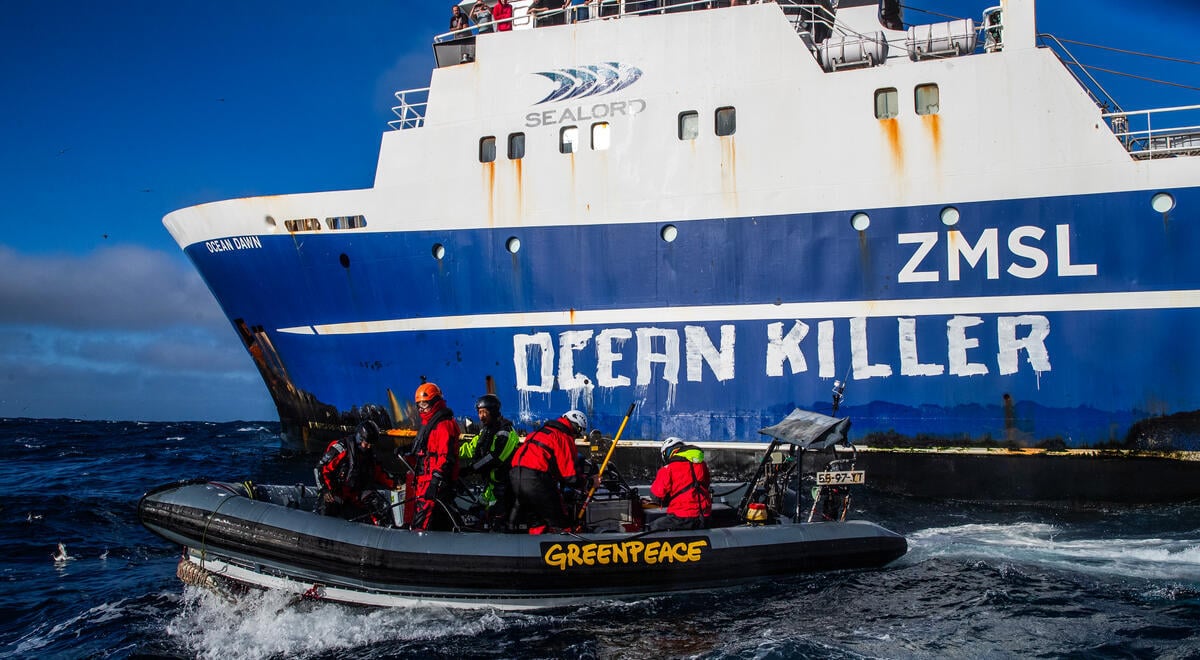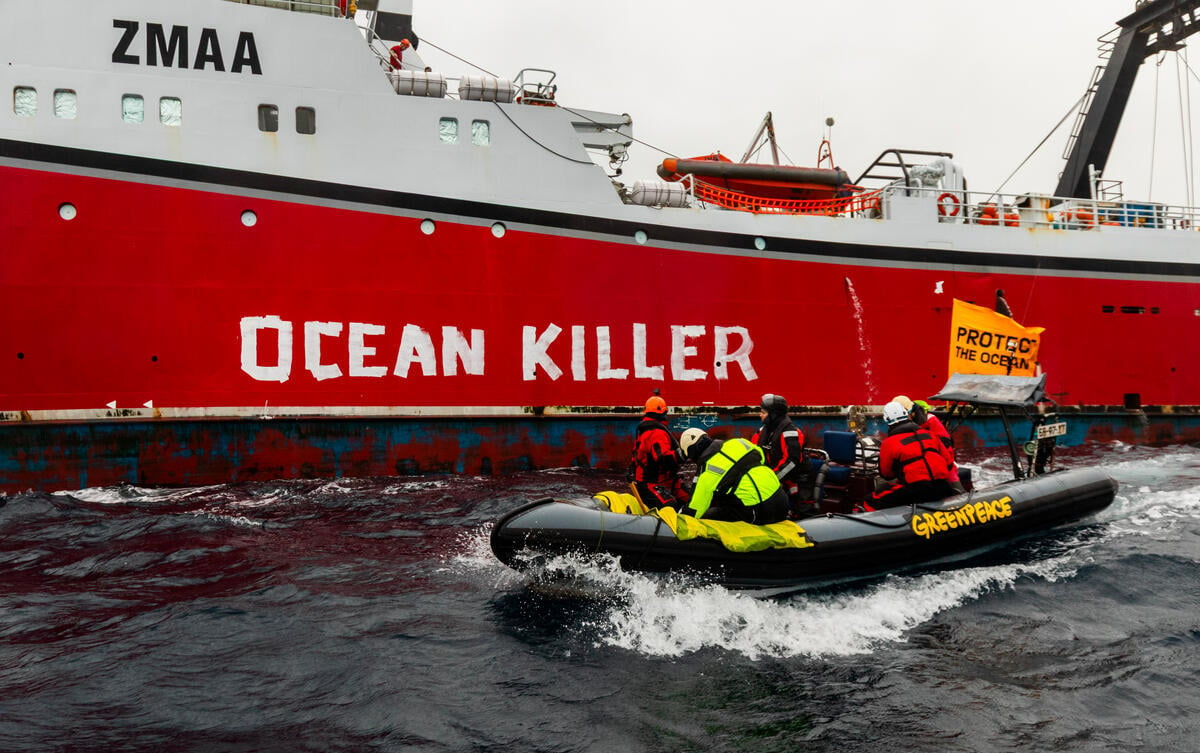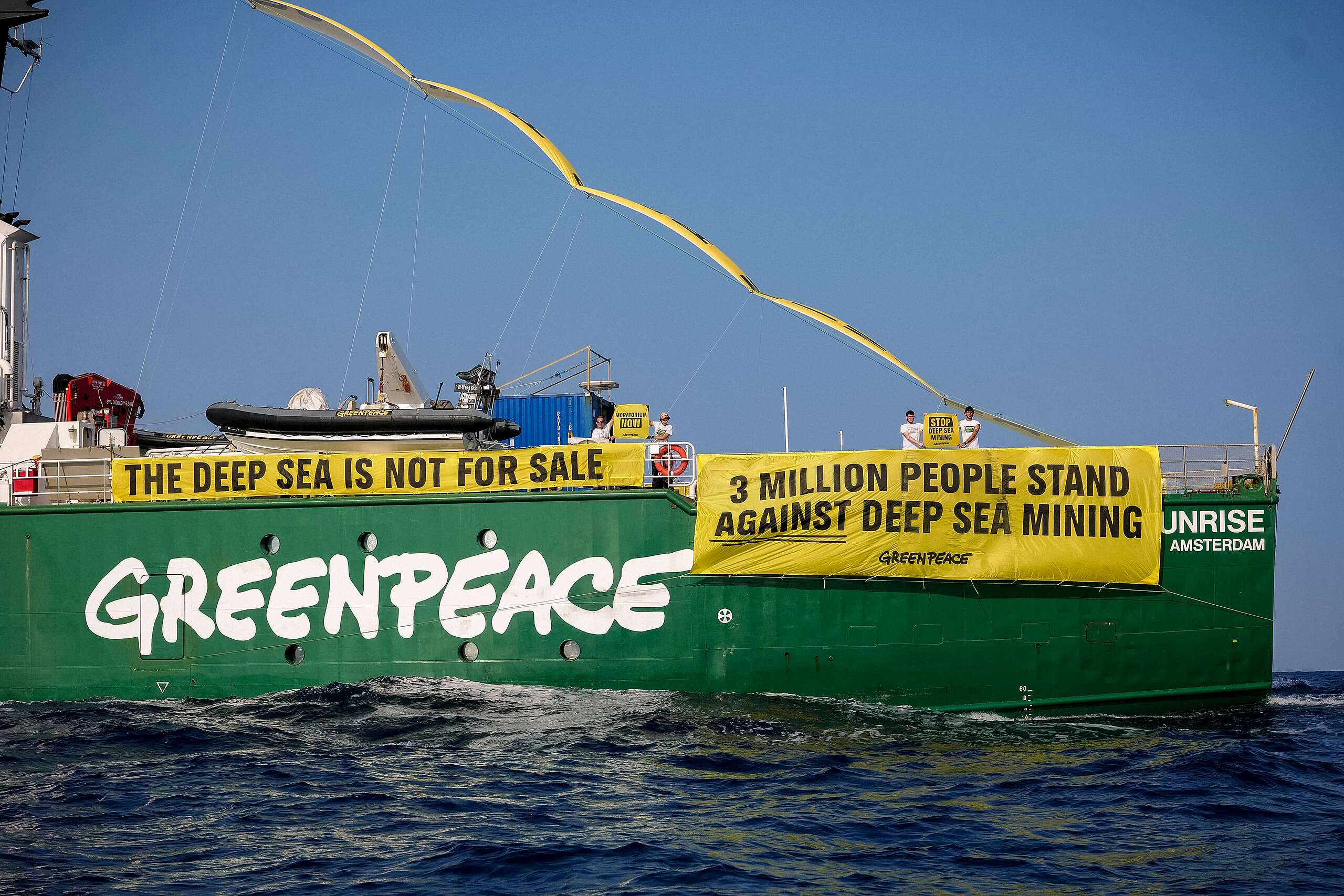This World Penguin Day, find out what counting penguins in the Antarctic can tell us about the health of our oceans.
Everyone loves penguins – with their waddling walks and fluffy chicks, it’s hard not to be charmed by them. But sadly, these iconic Antarctic residents are in trouble.
At the start of this year, Greenpeace travelled to the Antarctic, on the final stage of our Pole to Pole expedition. We were joined by a team of penguin scientists from Stony Brook and Northeastern Universities, who were there to count penguins – hundreds and hundreds of penguins.
The team were there to survey chinstrap penguin colonies on Elephant Island, and other remote islands near the Antarctic Peninsula. By observing changes in penguin colonies, they can better understand how climate change and other threats are impacting them, and so we can show the urgent need for better ocean protection. Sadly, it’s not looking good.
Penguin numbers here have dropped by almost 60% – with some colonies losing as much as 77% of their population since they were last counted in the early seventies. The scientists here are talking about a “fundamentally changed” ecosystem, and say that all the evidence they have points to climate change as the main culprit.
Why does a warmer world mean fewer penguins? It’s mostly about food. Like lots of Antarctic animals, these penguins feed on krill, which can get harder to find when there is less winter ice. This pressure on food supplies from the ocean, combined with changes to the land where they nest and raise their chicks, makes climate change a huge threat to the Antarctic’s best-loved residents.
But there’s a way to help them
As wildlife struggles, we urgently need new ocean sanctuaries in the Antarctic and across the world, so animals like these penguins have the space to recover and adapt to our rapidly changing climate, safe from harmful industries.
Around the world, more than 3 million people are calling for a network of ocean sanctuaries, and a strong Global Ocean Treaty which would enable it. Together we can make it happen, but we need all of our voices. Add yours today.



